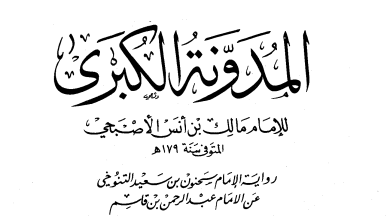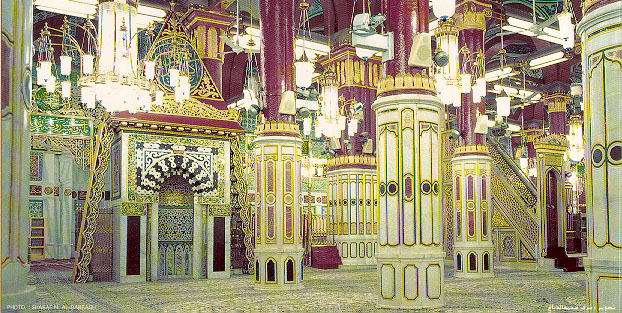Praying 2 Rak’at Sunnah of Fajr when the Jam’at is in Progress
1. Introduction
There is well known khilaf among the jurists (fuqaha) as to praying the two rak’at sunnah salah of fajr while the congregational obligatory salah has started.
Al-Shafi’i said that if the prescribed prayer has commenced he is not to offer the two rak’as inside or outside the mosque. Al-Nawawi writes that Imam Ahmad and the majority (jumhoor) have the same opinion as Al-Shafi’i [1] whereas the Hanafiyya differ.
قال محمد: يكره إذا أقيمت الصلاة، أن يصلي الرجل تطوعا غير ركعتي الفجر خاصة، فإنه لا بأس بأن يصليهما الرجل إن أخذ المؤذن في الإقامة، وكذلك ينبغي، وهو قول أبي حنيفة رحمه الله
Muhammad (bin al-Hasan al-Shaybani) said: “When the iqamah is announced, it is disliked for a man to pray a non-obligatory prayer, the only exception being the two rak’ahs of Fajr, for there is no harm in a man’s praying them even though the mu’adhdhin has started the iqamah. That is the verdict of Imam Abu Hanifa.”[2]
2. Evidence for the opinion of the majority (jumhoor)
As stated the opinion of the majority is of impermissibility of offering any nafl prayers while the obligatory (fard) salah is in progress. This view is based on the consideration of the general implication of the well-known hadith:
عن أبي هريرة، عن النبي صلى الله عليه وسلم، قال: «إذا أقيمت الصلاة فلا صلاة إلا المكتوبة
Abu Huraira reported the Messenger of Allah -may peace and blessings of Allah be upon him- as saying: “When the prayer commences, there is no prayer but the obligatory one.”[3]
The same is reported from other companions as well; including Ibn ‘Umar.[4]
Prima facie, the most categorical evidence for this view is in the additional words for the above mentioned narration of Abu Huraira recorded by al-Baihaqi in his al-Sunan al-Kubra i.e.
قيل: يا رسول الله، ولا ركعتي الفجر؟ قال: ولا ركعتي الفجر
“It was said: O Messenger of Allah, ‘Not even the two rak’ahs of fajr?’ He said, ‘Not even the two rak’ahs of fajr.’”[5]
There is, however, a question mark on the authenticity of this addendum. Although Hafiz Ibn Hajar has graded it as Hasan, Al-Baihaqi himself mentioned that two of its narrators, namely: Nasr bin Hajib and his son Yahya, are not reliable.
Al-Shawkani highlights that another narrator Muslim bin Khalid al-Zanji is also controversial (mutakallam fihi).[6]
Another evidence for their opinion is in the following hadith:
عن مالك ابن بحينة: أن رسول الله صلى الله عليه وسلم رأى رجلا وقد أقيمت الصلاة يصلي ركعتين، فلما انصرف رسول الله صلى الله عليه وسلم لاث به الناس، وقال له رسول الله صلى الله عليه وسلم: «الصبح أربعا، الصبح أربعا
Narrated Malik Ibn Buhaina: Allah’s Messenger passed by or saw a man praying two Rak’at after the Iqama (had been pronounced). When Allah’s Messenger completed the salat (prayer), the people gathered around him (the Prophet) or that man and Allah’s Messenger said to him (protesting), ‘Are there four Rak‘ahs in Fajr prayer? Are there four Rak‘ahs in Fajr prayer?”[7]
Al-Nawawi mentions that in this Hadith is an explicit forbiddance for starting the supererogatory (nafl) salah after the obligatory prayer has begun.[8]
The report is narrated from other Companions as well. According to another report the person whom the Prophet saw was Ibn ‘Abbas.[9]
3. Proofs for the stance of the Hanafiyya
While the Hanafi scholars agree that generally the rule is that no nafl salah is valid if started after the beginning of the jama’ah, they hold that two rak’ah sunnah of fajr is an exception due to great importance. Al-‘Ayni refers[10] to the following narrations in making this argument;
عن عائشة رضي الله عنها، قالت: لم يكن النبي صلى الله عليه وسلم على شيء من النوافل أشد منه تعاهدا على ركعتي الفجر
Narrated ‘Aishah: “The Prophet was never more regular and strict in offering any Nawafil than the two Rak’ah (Sunnah) of the Salatu-ul-Fajr prayer.”[11]
عن أبي هريرة، قال: قال رسول الله صلى الله عليه وسلم: لا تدعوهما، وإن طردتكم الخيل
Narrated Abu Hurayrah: The Prophet (may peace be upon him) said: “Do not omit them (the two rak’as before the dawn prayer) even if you are driven away by the horses.”[12]
Moreover, the Hanafiyyah seek evidence with the practice of some of the Companions. Consider the following reports recorded by al-Tahawi and others.
عن نافع، يقول: أيقظت ابن عمر رضي الله عنهما لصلاة الفجر , وقد أقيمت الصلاة , فقام فصلى الركعتين
Narrated Nafi’: “I awakened Ibn ‘Umar for Fajr Salah, while the (jama’h of) salah had started, he got up and performed two rak’a of salah.”[13]
عن أبي إسحاق، قال: حدثني عبد الله بن أبي موسى، عن أبيه، حين دعاهم سعيد بن العاص، دعا أبا موسى , وحذيفة , وعبد الله بن مسعود رضي الله عنهم , قبل أن يصلي الغداة , ثم خرجوا من عنده وقد أقيمت الصلاة , فجلس عبد الله إلى أسطوانة من المسجد , فصلى الركعتين , ثم دخل في الصلاة “
Abu Ishaq says, “‘Abdullah ibn Abi Musa related to me from his father regarding the time Sa’id bin al-‘As called them. He had called Abu Musa, Huzayfa, and ‘Abdullah ibn Mas’ud before the Fajr salah. When they departed from him, the congregation had already begun, so ‘Abdullah ibn Mas’ud positioned himself behind a pillar in the masjid and performed two rak’ahs sunnah first, then joined the congregation.”[14]
After quoting this, al-Tahawi writes;
فهذا عبد الله قد فعل هذا ومعه حذيفة وأبو موسى لا ينكران ذلك عليه , فدل ذلك على موافقتهما إياه
“And it was ‘Abdullah who did this and with him were Huzayfa and Abu Musa. They did not criticize him for this. It is evidence that they both agreed with him on this issue.”
عن أبي مجلز، قال: دخلت المسجد في صلاة الغداة مع ابن عمر وابن عباس رضي الله عنهم , والإمام يصلي. فأما ابن عمر رضي الله عنهما فدخل في الصف , وأما ابن عباس رضي الله عنهما , فصلى ركعتين , ثم دخل مع الإمام , فلما سلم الإمام قعد ابن عمر مكانه , حتى طلعت الشمس , فقام فركع ركعتين “
Abu Mijlaz said: “I entered the mosque at the time of Fajr Salah with ‘Abdullah bin ‘Umar and ‘Abdullah bin ‘Abbas, may Allah be pleased with them, and the Imam was in prayer so Ibn ‘Umar joined the Salah while Ibn Abbas offered two rak’as then he entered the salah with Imam. When the Imam ended the Salah, Ibn ‘Umar sat at his place until the sun rose then he stood up and offered two rak’ahs (sunnah).”[15]
عن أبي الدرداء أنه كان يدخل المسجد والناس صفوف في صلاة الفجر , فيصلي الركعتين في ناحية المسجد , ثم يدخل مع القوم في الصلاة
Abu Darda stated: “I entered the Masjid when the people had stood row by row in Fajr salah. He performed two rak’ahs of salah at one side of the mosque, and then joined the congregation in salah.”[16]
عن وبرة ، قال : رأيت ابن عمر يفعله ، وحدثني من رآه فعله مرتين ؛ جاء مرة وهم في الصلاة ، فصلاهما في جانب المسجد ، ثم دخل مرة أخرى فصلى معهم ، ولم يصلهما
Wabrah narrated: “I saw Ibn ‘Umar doing it [i.e. praying the two rak’a of fajr while the jam’ah was in progress]. And one who saw him twice narrated to me. Once he came and the people were praying, so he offered two rak’ahs in a corner of the mosque [before joining the jam’ah]. And at another time he joined the people in the prayers and did not pray two rak’ahs.”[17]
4. Analysis of the Proofs
The strength of the evidence of the majority (jumhoor) is evident as their case rests on direct narrations traced back to the Holy Prophet himself, may the peace and blessings of Allah be upon him. As quoted by Ibn Hajar, Hafiz Ibn Abd al Barr argued that what is best in the case of this difference is to stick to the sunnah of the Prophet and leave the nawafil at the time of the fard salah and to offer them afterwards.[18]
However, the evidence to the contrary is not such that can be rejected or overlooked. This is especially true for the fact that Ibn ‘Umar who also narrated the Hadith “When the prayer commences, there is no prayer but the obligatory one” is, as shown above, reported to have offered the two rak’ah of fajr while the jam’ah was in progress.
Likewise Ibn ‘Abbas was the one whom the Holy Prophet –may the peace and blessings of Allah be upon him- questioned about offering the two rak’ah at the time of iqama for fajr and yet he also did the same as mentioned above.
Commenting on the narration of Malik bin Buhaina, al-Qurtubi writes;
وهذا إنكار منه صلى الله عليه وسلم على الرجل لصلاته ركعتي الفجر في المسجد والإمام يصلي، ويمكن أن يستدل به أيضا على أن ركعتي الفجر إن وقعت في تلك الحال صحت، لأنه عليه السلام لم يقطع عليه صلاته مع تمكنه من ذلك، والله أعلم
“This points to the Holy Prophet’s dislike for the person who stands up for two rak’ahs of fajr while the imam is leading the prayers. And it may also be inferred that if the two rak’ahs of fajr are offered this way they are valid because the Holy Prophet did not make him break the salah even though he could. And Allah knows the best!”[19]
Moreover, earlier we saw the narrations mentioning the practice of four companions (Ibn Mas’ud, Ibn ‘Abbas, Ibn ‘Umar and Abu Darda’) who were among the accurate juristic minds in the generation of the Companions.
In another hadith it is stated that one who misses the two rak’as can make them after the sunrise;
عن أبي هريرة، قال: قال رسول الله صلى الله عليه وسلم: «من لم يصل ركعتي الفجر فليصلهما بعد ما تطلع الشمس»
Abu Huraira reported that Allah’s Messenger said: “He who has not offered the two rak’ahs of fajr may offer them after sunrise.”[20]
References






